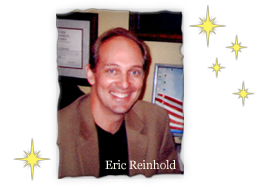. This one features excerpts from YA novels on the 21st of every month. I enjoy reading teen fiction (even thought I'm not a teen anymore!), and it's great to be able to help spread the word about noteworthy books.
Our story begins in a world totally like our own, yet completely different. What once happened here in our own history seems to be repeating itself thousands of years from now,
some time beyond the year 4000 AD.
But this time the future belongs to those who see opportunity before it becomes obvious. To the young, to the warriors, to the lovers. To those who can follow hidden clues and find a great
treasure that will unlock the mysteries of life and wealth.
Thirteen years have passed since the lush, colored forests were turned to desert by Teeleh, the enemy of Elyon and the vilest of all creatures. Evil now rules the land and shows itself as a painful, scaly disease that covers the flesh of the Horde, a people who live in the desert.
The powerful green waters, once precious to Elyon, have vanished from the earth except in seven small forests surrounding seven small lakes. Those few who have chosen to follow the ways of Elyon now live in these forests, bathing once daily in the powerful waters to cleanse their skin of the disease.
The number of their sworn enemy, the Horde, has grown in thirteen years and, fearing the green waters above all else, these desert dwellers have sworn to wipe all traces of the forests from
the earth.
Only the Forest Guard stands in their way. Ten thousand elite fighters against an army of nearly four hundred thousand Horde. But the Forest Guard is starting to crumble.
oneDay One
Qurong, general of the Horde, stood on the tall dune five miles west of the green forest, ignoring the fly that buzzed around his left eye.
His flesh was nearly white, covered with a paste that kept his skin from itching too badly. His long hair was pulled back and woven into dreadlocks, then tucked beneath the leather body armor
cinched tightly around his massive chest.
“Do you think they know?” the young major beside him asked.
Qurong’s milky white horse, chosen for its ability to blend with the desert, stamped and snorted.
The general spit to one side. “They know what we want them to know,” he said. “That we are gathering for war. And that we will march from the east in four days.”
“It seems risky,” the major said. His right cheek twitched, sending three flies to flight.
“Their forces are half what they once were. As long as they think we are coming from the east, we will smother them from the west.”
“The traitor insists that they are building their forces,” the major said.
“With young pups!” Qurong scoffed.
“The young can be crafty.”
“And I’m not? They know nothing about the traitor. This time we will kill them all.”
Qurong turned back to the valley behind him. The tents of his third division, the largest of all Horde armies, which numbered well over three hundred thousand of the most experienced warriors, stretched out nearly as far as he could see.
“We march in four days,” Qurong said. “We will slaughter them from the west.”
MORE DEKKER TITLES TO EXPLORE:Adam
Black: The Birth of Evil (The Circle Trilogy Graphic Novels, Book 1)
Saint I hope you're enjoying this series as much as I've enjoyed putting it together. :) So many talented editors, authors, publicists and agents have shared their response to the question:
I hope you're enjoying this series as much as I've enjoyed putting it together. :) So many talented editors, authors, publicists and agents have shared their response to the question:






















